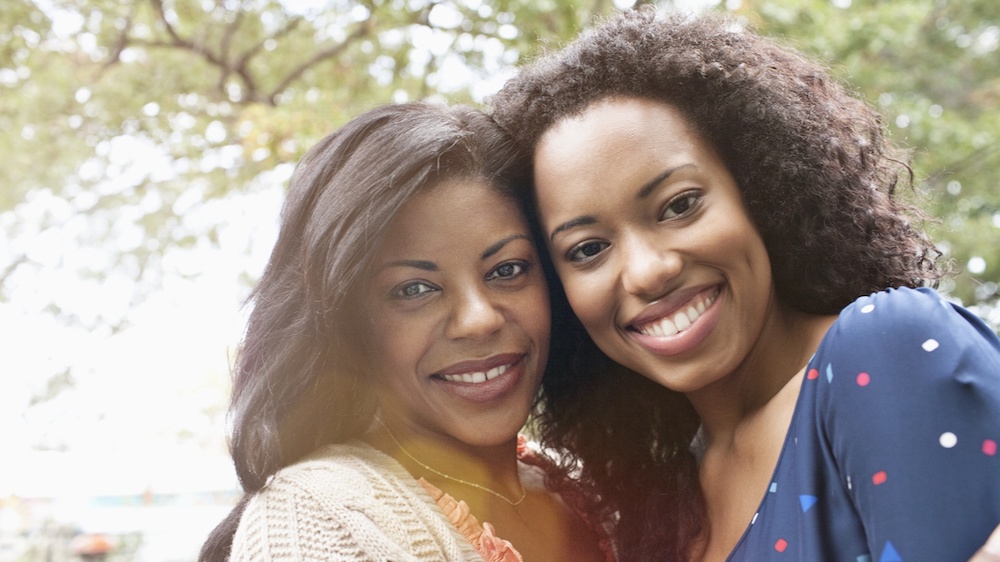If you’re interested in sharing your opinion on any cultural, political or personal topic, create an account here and check out our how-to post to learn more.
Opinions are the writer’s own and not those of Blavity's.
____
As Black women in America, we carry a lot on our shoulders and fight many battles along the way. But for many of us, the very first battles that we ever faced were with our own mothers. Deeper than any stereotype and more painful than any breakup, there are wounds within the Black community that are plaguing the relationships between mothers and their daughters.
Experiencing mental, emotional and physical abuse at the hands of my mom isn’t an experience that I should have had to face; and yet, it was my reality. I’m not proud to admit this, but from the age of 17 to 19, I told everyone that I came across that my mother was deceased. With Mother’s Day just around the corner and saddened by my strained relationship with my mom, I felt compelled to dig into how others feel about this not-so-silent issue and how it can be resolved.
“This issue goes deeper than just a mother and daughter relationship. As Black women, we have always felt compelled to protect Black men, while neglecting Black women. We have a sense of scarcity about us that puts us into competition mode. We’ve been taught that there can only be one when it comes to others in our own race and gender.”
— Moriah Lane, African American History Scholar
Though the strength of a Black woman is unmatched by any other, our fatal flaw has proven to be our very own competition amongst ourselves. Going back generations, Black moms are raising their daughters with the same toxic traits that were used to raise them. These traits have conditioned us to believe that other Black women should be seen as rivals. Where history should have taught us unity, we’re instead repeating a pattern of division.
“Black women inherently have issues with other Black women. When it comes to those who share our race and gender, we’re conditioned to believe that there can only be one. It’s unfortunate when, as Black women, we’ve been trained to hate or feel threatened by what happens to come in the form of our daughter.”
— Moriah Lane
Though this issue takes up a branch of our history, it is not the only history that we come from, and it certainly can’t be how we end our story. Though the chance of improving my relationship with my mother has come and gone, this Mother’s Day can act as a beacon of hope and reconciliation for others in my shoes. If Moriah is right — and undoubtedly she is — then this issue was started in the history of African American Women, and that’s where I needed to search for my answer.
If you’re looking for a way to reconcile, here are some ways you can use history to heal the relationship with the mother that you were given:
Join A Book Club
The Sister Days Mother/Daughter Book Club was founded by author and historian, Janus Adams. This book club, launching on Mother’s Day, is a six-week virtual retreat that allows mothers and daughters to journey from history to healing and hope. The therapeutic and entertaining journey even ends with a pilgrimage to the home and gravesite of Harriet Tubman, a woman who not only dared to liberate herself but circled back to show others the way.
Visit A Museum
Thanks to the Google Arts & Culture App, The National Museum of African American History and Culture offers virtual tours that seek to understand American history through the lens of the African American experience. The only national museum devoted exclusively to the documentation of African American life, history and culture, it was established after decades of efforts to promote and highlight the contributions of African Americans. To date, the Museum has collected more than 37,000 objects and nearly 100,000 individuals have become charter members.
If history is our problem, then it must also be our solution. Black women are changing the world every day, but we appear to be neglecting an important part of home in the process. Knowing that this isn’t something that can change overnight, the first step towards that change comes from making a simple gesture. Whether you decide to join Dr. Janus Adam’s book club, watch a marathon of Black women’s history movies or even just sit down for a chat, I want to encourage you to spend this Mother’s Day healing from the decades of trauma that are holding us back.
